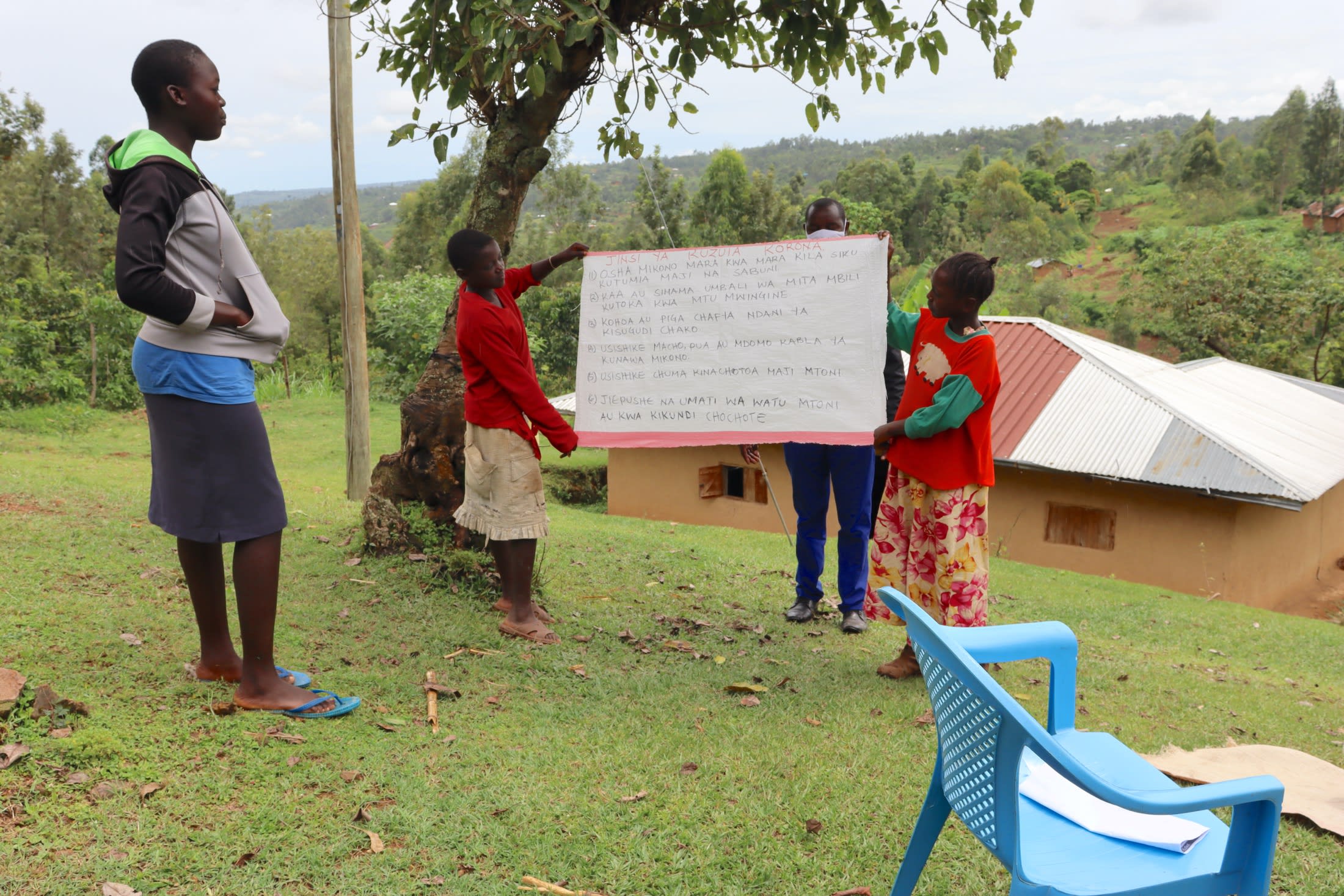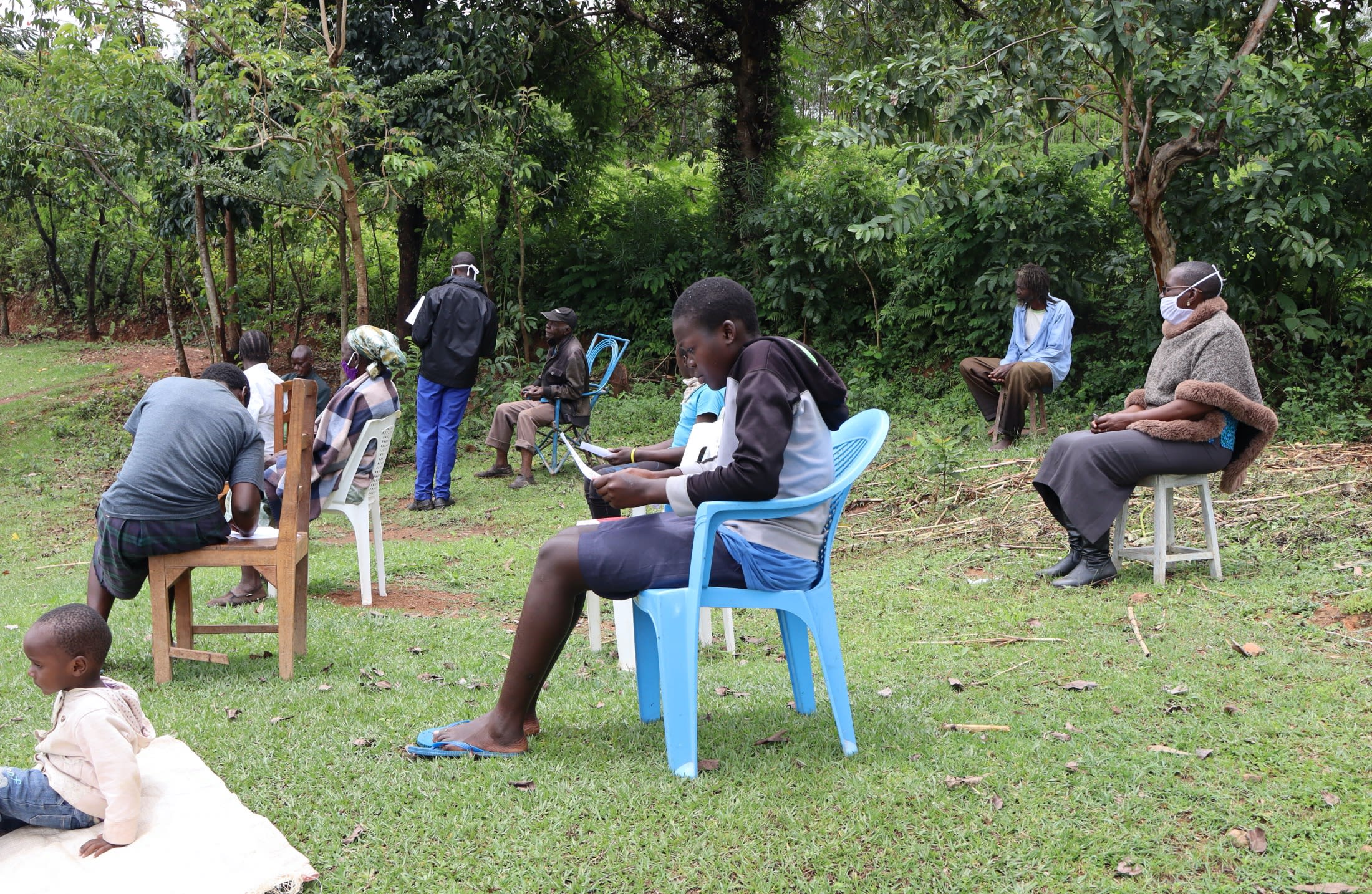This project is a part of our shared program with Western Water And Sanitation Forum. Our team is pleased to directly share the below report (edited for clarity, as needed).
Background Information
This unprotected spring is located in Ebusuvi Village, Ebuchimi Sub-Location, Emasava Location, Mwibona Ward, Luanda Sub-County of Vihiga County. The spring serves a population of 432 people from 48 different households. 190 community members are male and 242 are female. The spring's water is used for drinking, cooking, washing, and watering animals.
Justification
This water is currently open to contamination caused by surface runoff and waste left in the bushes that surround the spring. Animals also drink directly from the spring because there are no troughs set aside for their water. These animals step into the water while drinking. Arthur Okwemba Spring also runs through the lower part of the land, which increases the amount of runoff washed into the water during rainy weather.
When the water is especially muddy, women have to wait for the flow to refresh and the dirt to settle. This wastes a lot of time that could be used for more productive activities. Women who choose not to wait at Arthur Okwemba Spring will opt for other unprotected sources approximately 500 meters away from the village. Many conflicts arise due to long periods of either waiting for or in search of water.
The way water is handled is another big issue which contributes to the spread of water-related illness. The water container is not covered on the way home or during storage, and the container itself is often already dirty. Handling water is just one of many topics that will be covered in sanitation and hygiene training.
Typhoid, cholera, diarrhea, and dysentery have all been reported as results from drinking Arthur Okwemba Spring's water.
Sanitation in this community is also critical. Many households don't have good latrines and thus opt to use the bushes. This uncovered waste is a contaminate carried back and forth by insects and animals. A survey of the area revealed that this is one of the community's biggest issues. Five of the most lacking households will be chosen for new sanitation platform (safe, easy-to-clean concrete floors for latrines) construction.
The community members are urging us to consider their spring for a protection project, and to also construct new sanitation facilities in order to reduce health problems around Arthur Okwemba Spring.
Water and Sanitation Management Committee Training
This training was held from November 10-11 at a homestead near the spring. There was a total of 16 participants of which nine were female and seven were male. The purpose was to equip the committee with the skills needed to manage and maintain Arthur Okwemba Spring.
The facilitator highlighted the importance of community involvement for this project to be a success. Any contributions give locals a sense of ownership and thus increase the project's sustainability. The group agreed to mobilize the local materials needed for construction, such as: hardcore, ballast, clean sand, bricks, and fencing poles. The community should also be willing to host construction workers that need accommodation or food.
The committee was also responsible for electing five households that are in need of sanitation platforms (easy-to-clean concrete latrine floors). These families will have to dig their own latrine pit and provide extra clean sand, bricks, and wall materials. Having these new latrines will greatly reduce the rate of open defecation in the village.
The committee was taken to the spring for a practical session. Once they saw the negative effects of bad behaviors, the committee agreed to do the following:
- Make laws that punish bad behavior at the spring
- Build a fence to keep out animals
- Plant grass around the catchment area to decrease evaporation
- Dig trenches to drain excess water (preventing erosion)
The committee was also encouraged to seek advice from other neighboring communities that already benefited form a protection project. The committee should then take the knowledge from training and from others and share that with their own community.
The host and committee thank the donor for working with The Water Project and WEWASAFO. They believe these projects will relieve the community of a great burden, giving them a chance to put greater effort into economic development. The committee also asks that their community be considered for future projects, considering their spring protection project as the first step in a long series.
Project Results:
Spring Protection
Protection of Arthur Okwemba is complete and now in use by the community members. Before this project, the spring served a total of 48 households. Since news of accessible clean water, the number of benefiting households has increased to 56.
The spring is now protected and is no longer open to contamination by surface runoff. Water is now safe for consumption since all the contamination routes have been blocked. The community members are happy to draw water from the discharge pipe. In addition, the trained Water Sanitation Management Committee's members have formulated rules and regulations to govern the use of the spring.
Women no longer waste a lot of their economical time waiting for the spring water to refresh. Conflicts have decreased tremendously in many homes since women no longer must delay in serving their families while seeking clean water.
Household Sanitation Platforms
Sanitation platforms have been installed and are now in use by five different benefiting households. Isaac is the happiest of all, saying, "I now feel like a normal human being. Having a latrine for my family has helped me restore my dignity. I used to feel bad when I saw my struggling to hide themselves in the bush so that they can relieve themselves not to talk of myself waiting until the night so that I can relieve myself... My God will bless the donor for me."
Thank You for giving the hope that clean water and good health bring.
 Protected Spring
Protected Spring
 Rehabilitation Project
Rehabilitation Project





















